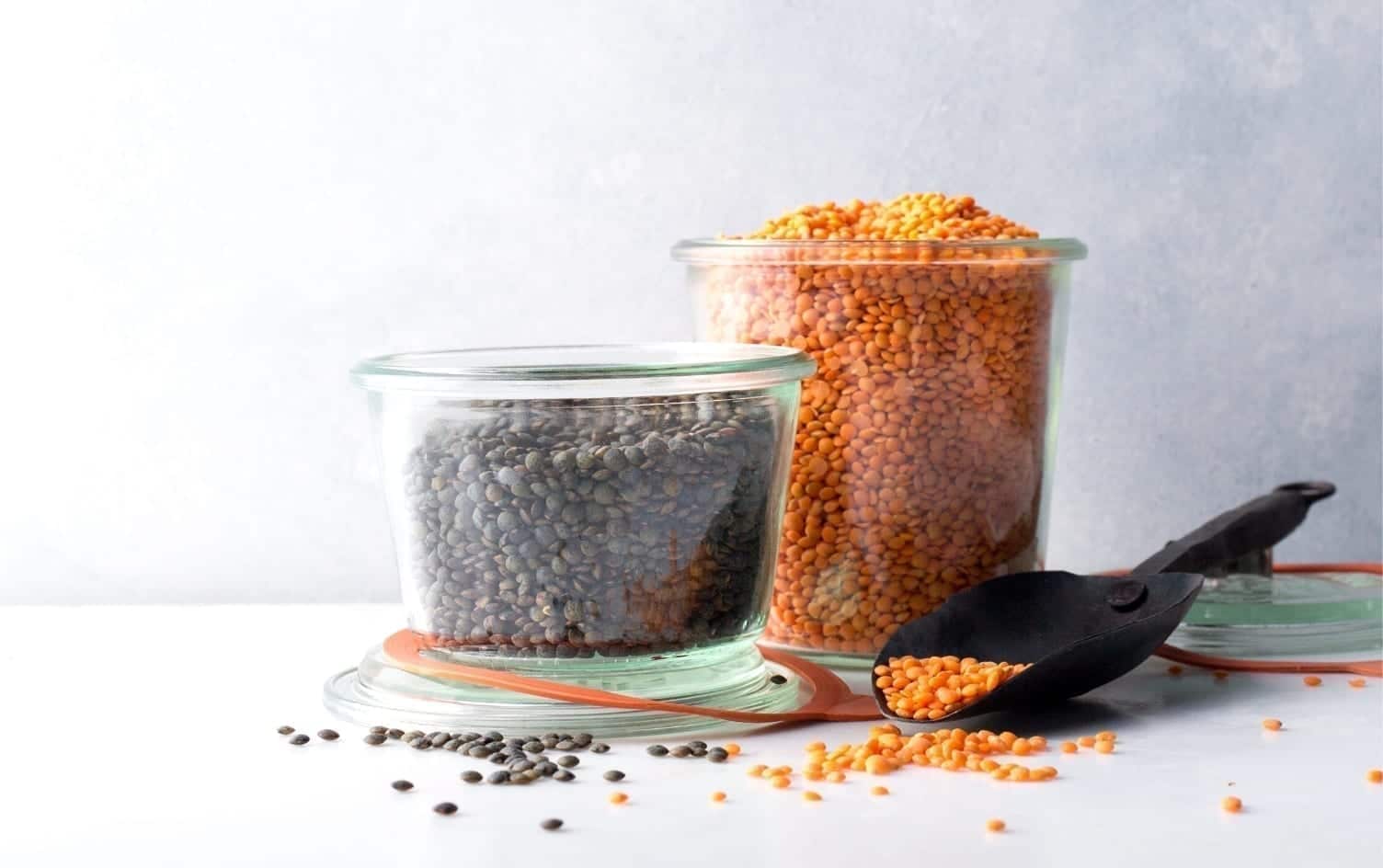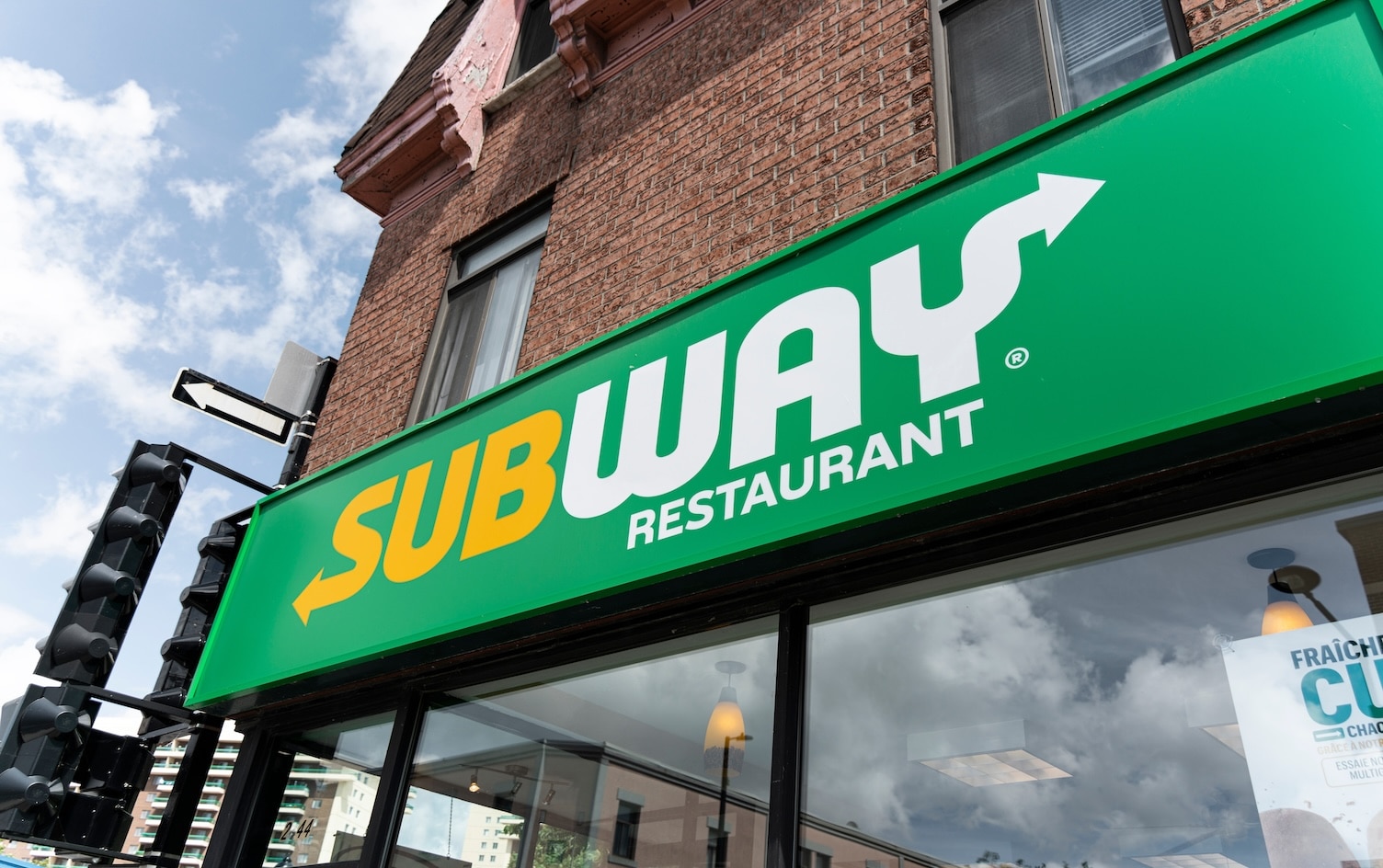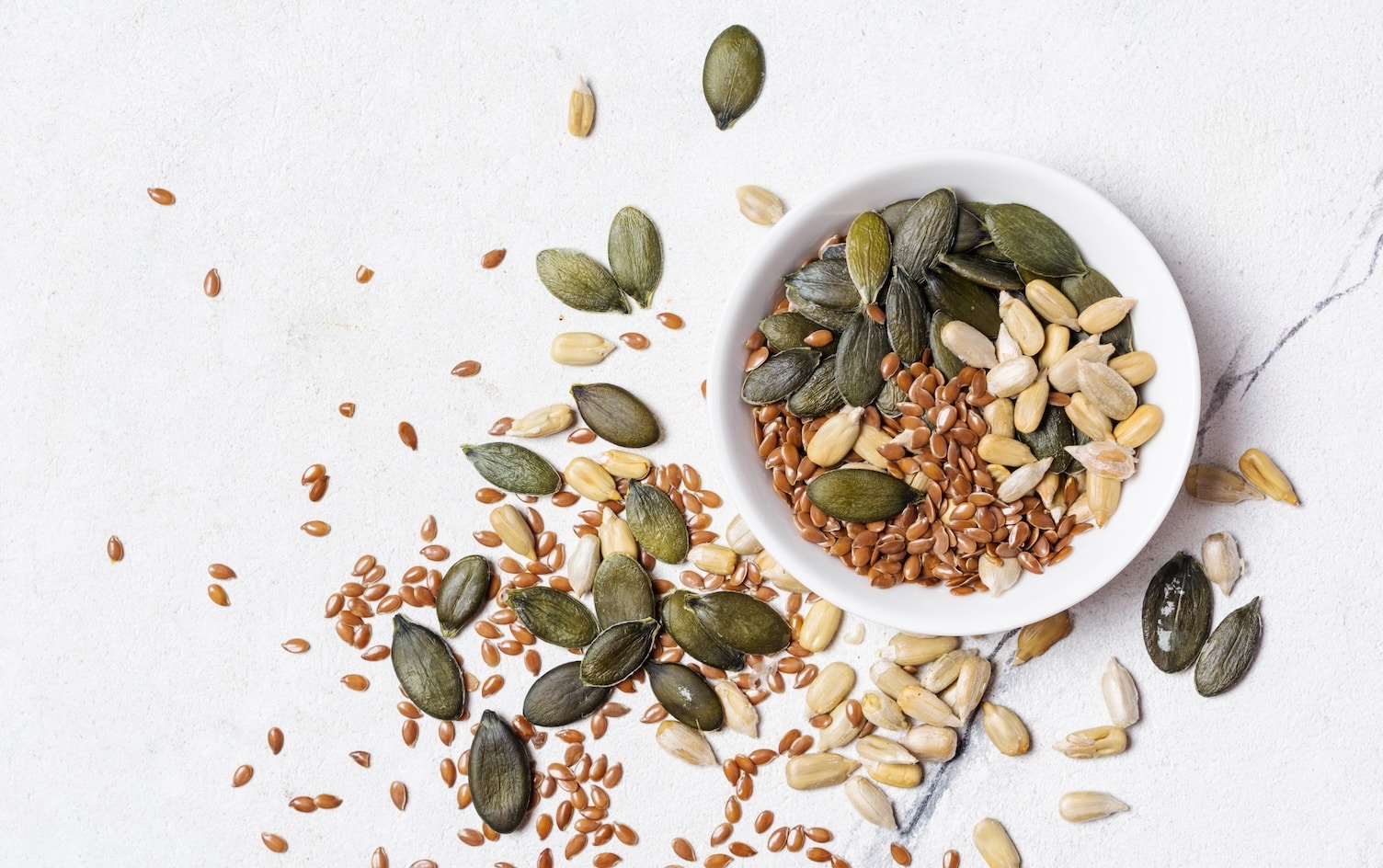Having a well-stocked pantry can be advantageous whether you are looking to create a quick and easy weeknight meal or planning family-style meal prep. Not only are these 10 ingredients nutritious and versatile, but they will also help you save more money on groceries.
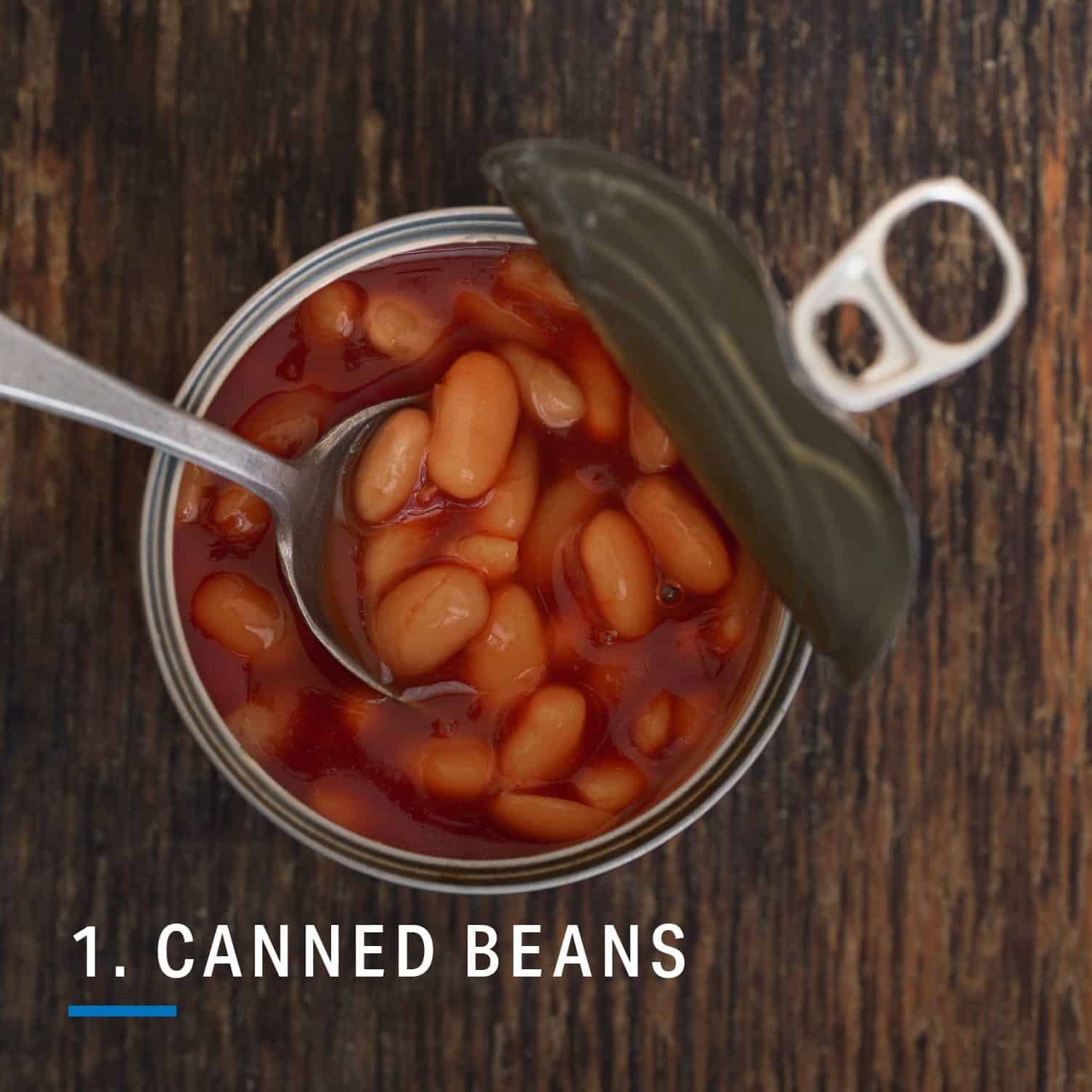
Canned beans, like black beans, chickpeas and kidney beans, are common pantry staples that add depth to many recipes, from chilis and soups to burritos and even baked goods. One cup (150g) of cooked beans offers nearly 15 grams of protein, with ample fiber, folate, manganese and iron.
Price tag: Canned beans generally cost less than $1 per can.
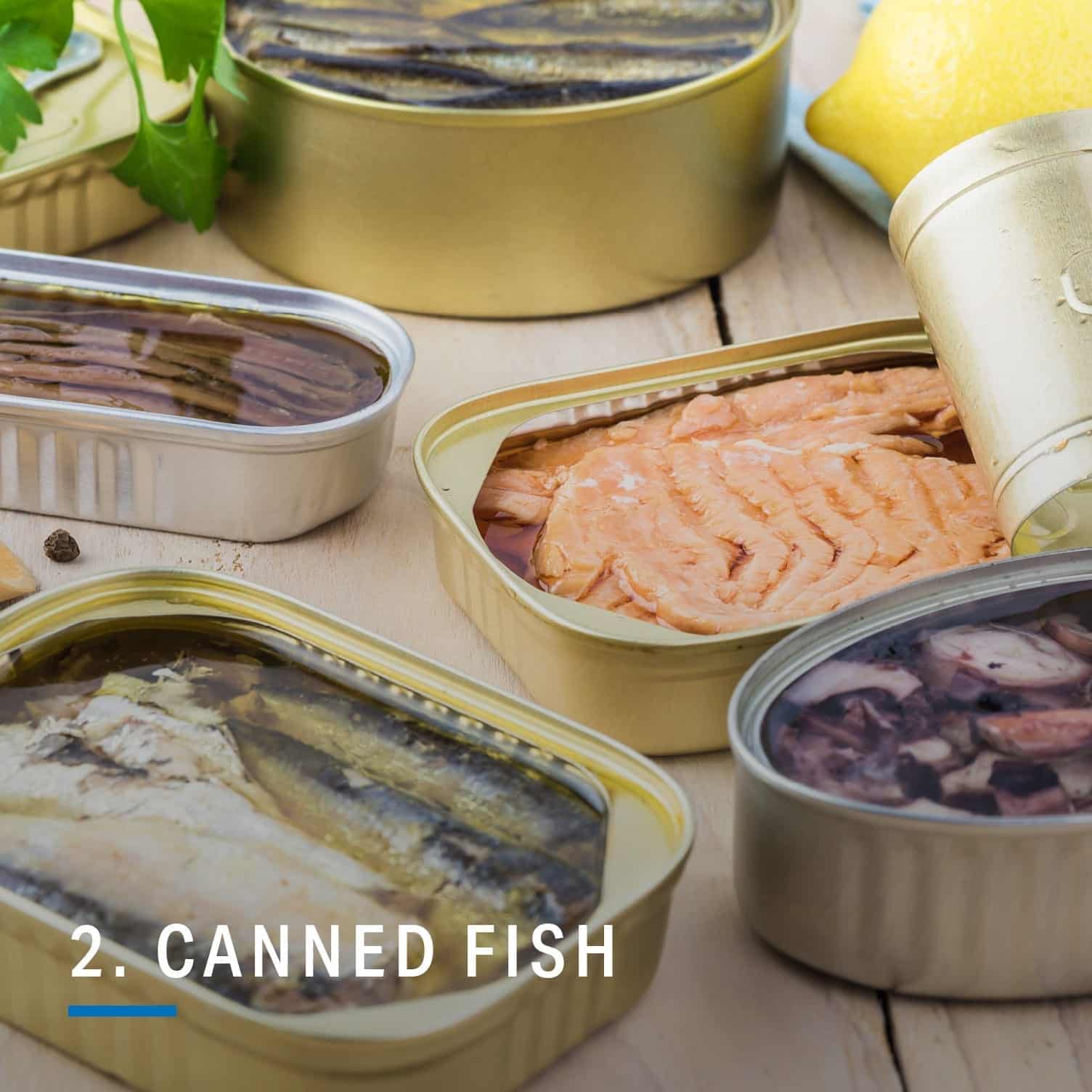
Canned fish, like tuna and salmon, is a great source of protein, heart-healthy omega-3 fatty acids and micronutrients, like calcium, phosphorus, potassium, selenium and vitamin B12. Including canned fish in your diet is a smart way to meet the recommended two servings of seafood each week while staying within your grocery budget. Add tuna to your salad or pasta dish or use canned fish as a base for tuna or salmon patties.
Price tag: Canned fish generally costs $2 per serving.
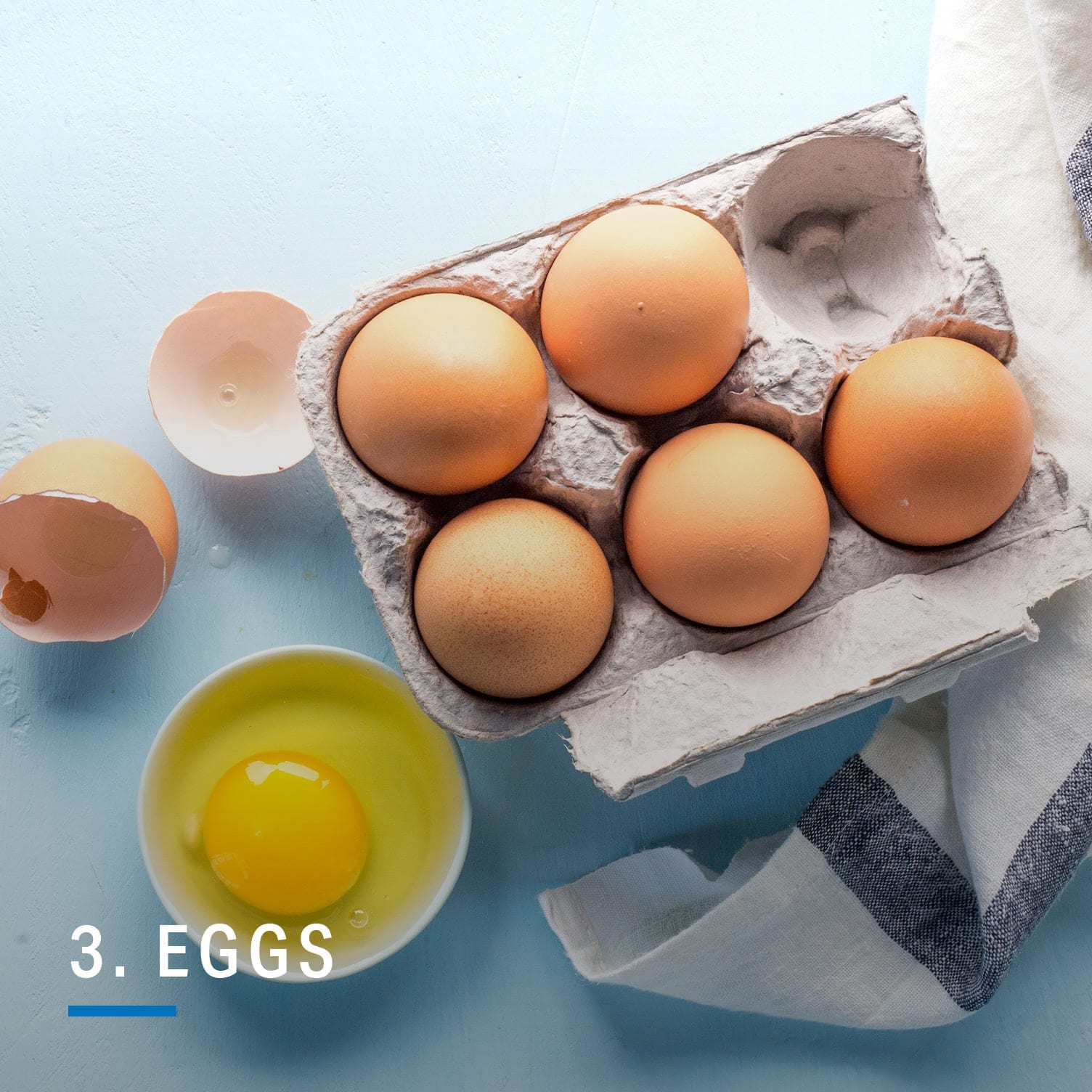
Eggs are a top-logged food in MyFitnessPal for good reason. One egg offers 6 grams of protein and several other nutrients, like vitamin D, phosphorus, choline, B vitamins and leucine, an important amino acid for muscle building. Eggs are extremely versatile and delicious in nearly any meal.
Price tag: Eggs generally cost between $2–$2.50 per dozen.
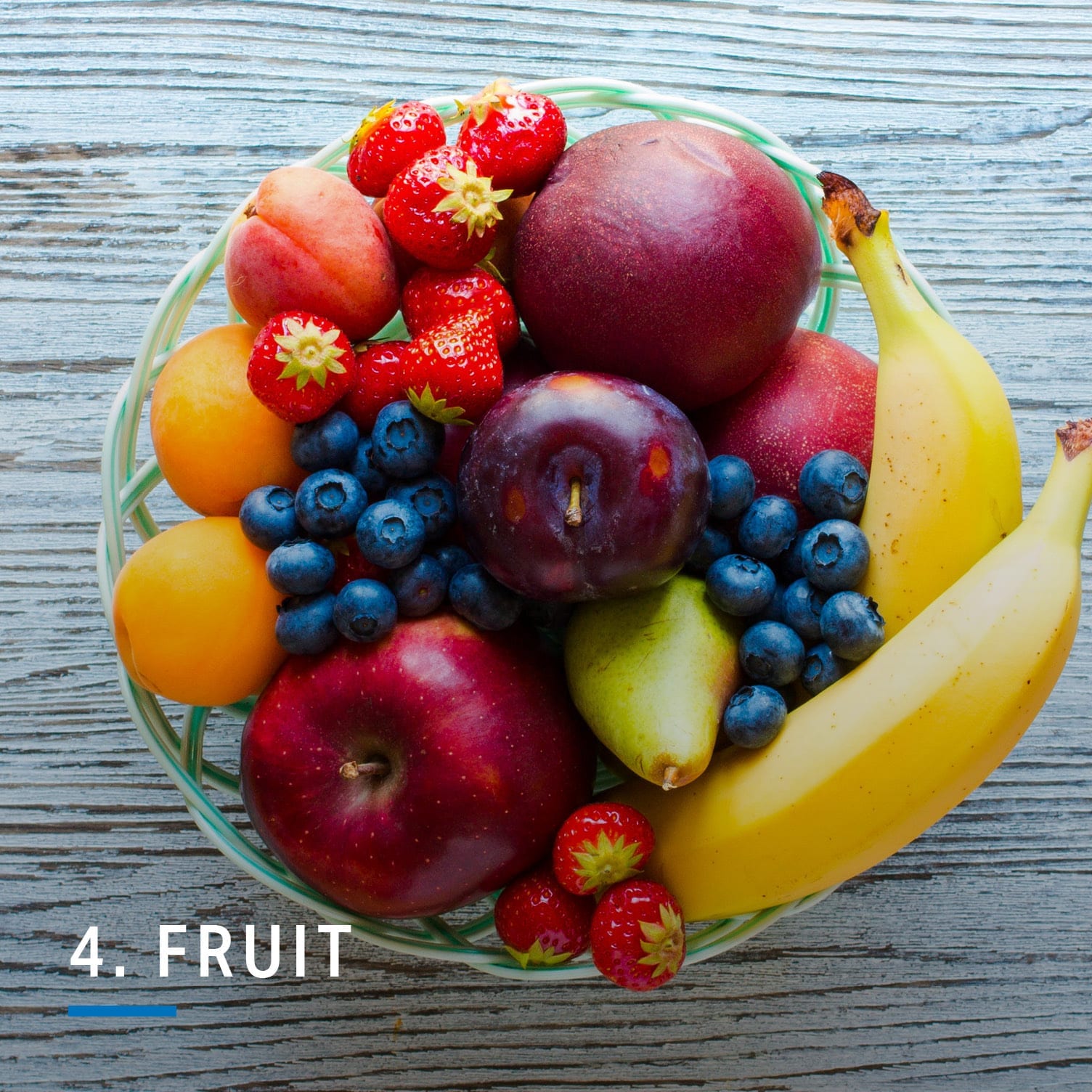
Load your grocery cart with fruits like bananas, oranges and apples, which are rich in fiber, antioxidants and several micronutrients. Fruit offers a portable snack option, and fresh, frozen and dried fruit can all be great additions to oatmeal, baked foods, salads, yogurt parfaits and smoothies. To save money, consider buying fruits in-season or buy flash-frozen options, which are just as nutrient-dense.
Price tag: A bunch of bananas generally costs less than $2, while you can get a handful of apples and oranges at a similar price.
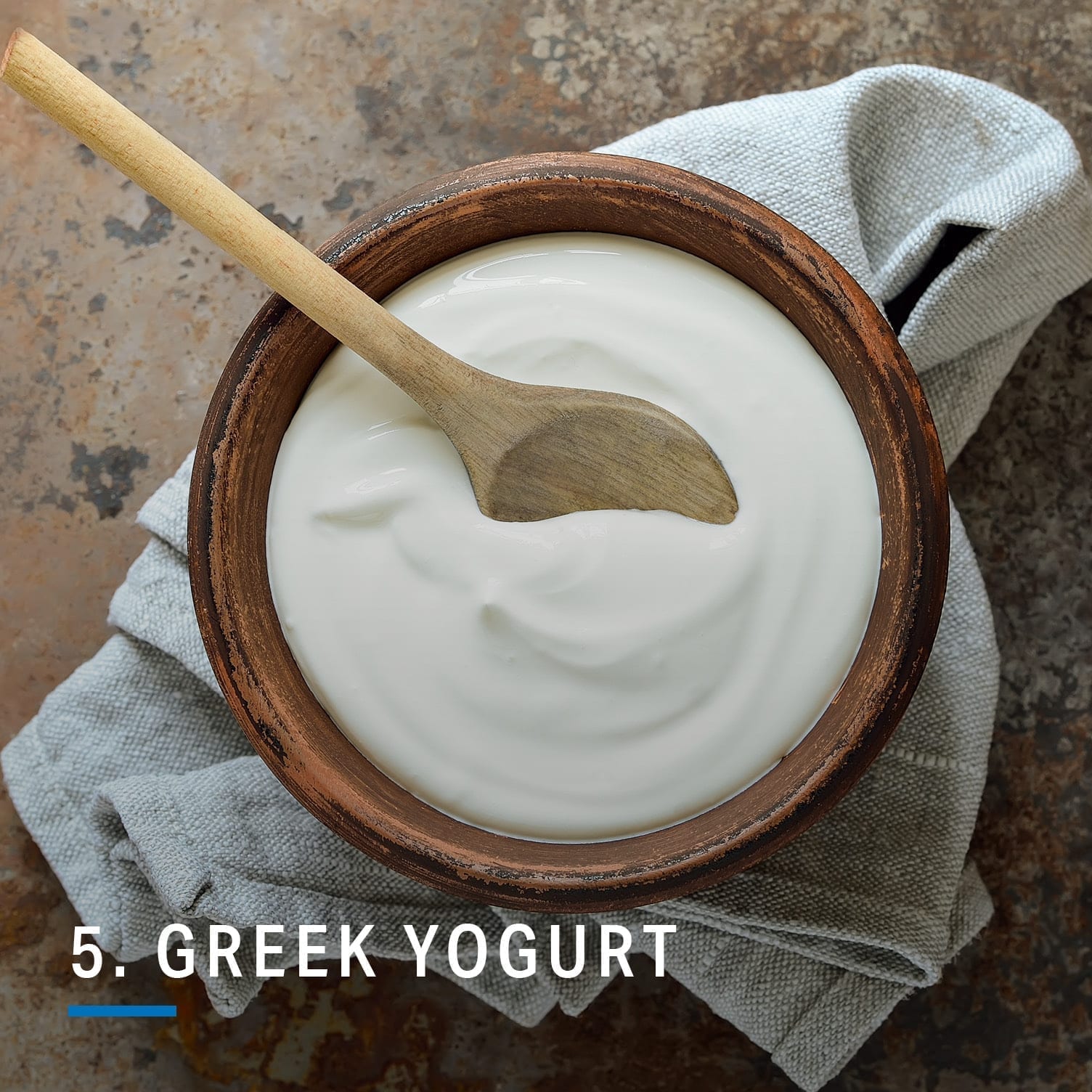
Greek yogurt is rich in vitamin D, calcium, gut-friendly probiotics, potassium and protein. To reduce the sugar content, buy it plain, and add your own fruit or honey. You can also use Greek yogurt as a substitute for mayonnaise or sour cream, and it can add more texture in baked goods.
Price tag: Single-serving containers generally cost around $1.25; you can reduce the cost further by buying a large tub.
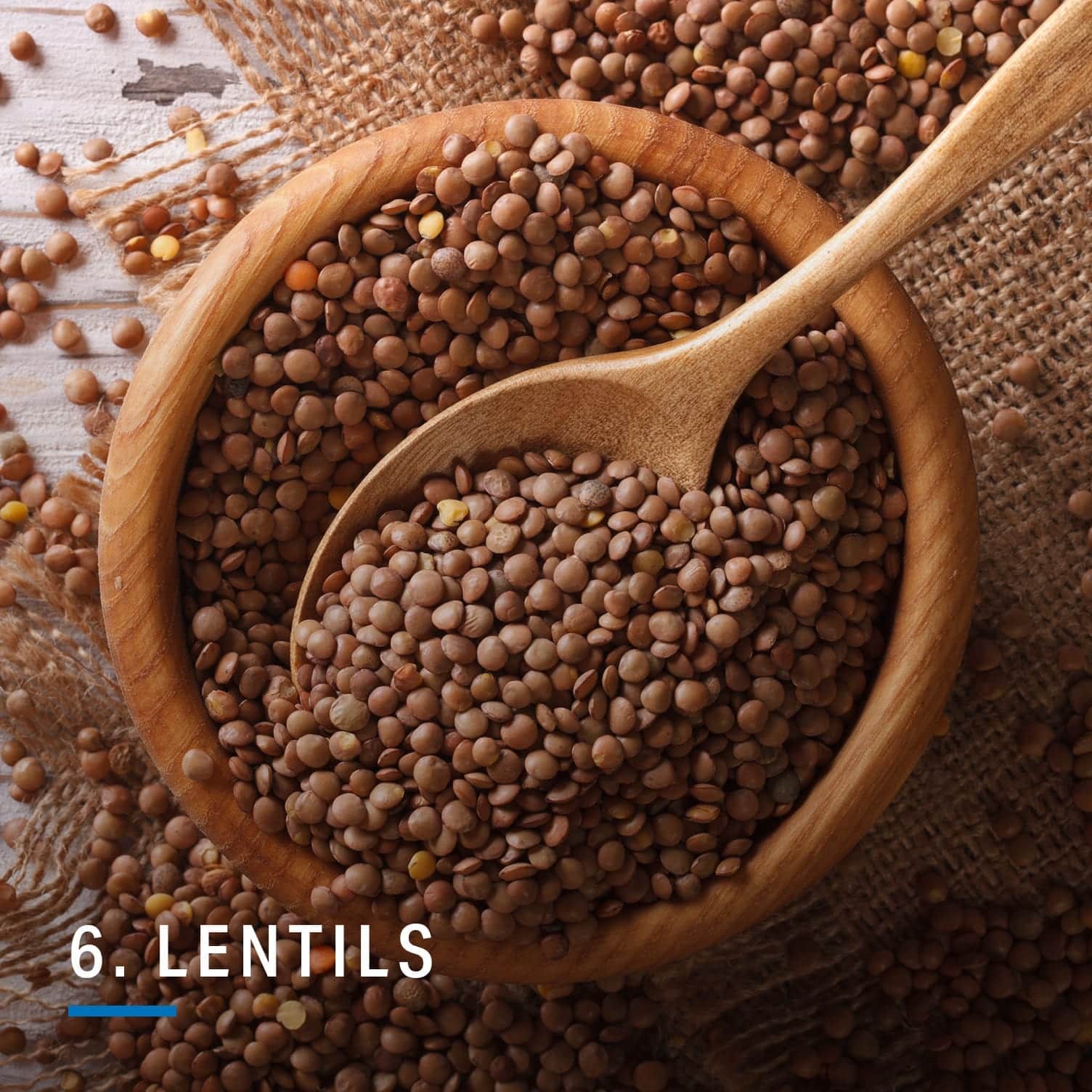
While there are several varieties of lentils available, green, yellow and red are the most widely consumed. Lentils are a plant-based protein staple, with 1 cup (150g) offering nearly 18 grams of protein. Lentils are also rich in fiber, iron, magnesium, zinc, potassium and B vitamins. Unlike other legumes, lentils do not need to be soaked beforehand and typically cook in less than 20 minutes.
Price tag: A 16-ounce bag of lentils generally costs less than $2.
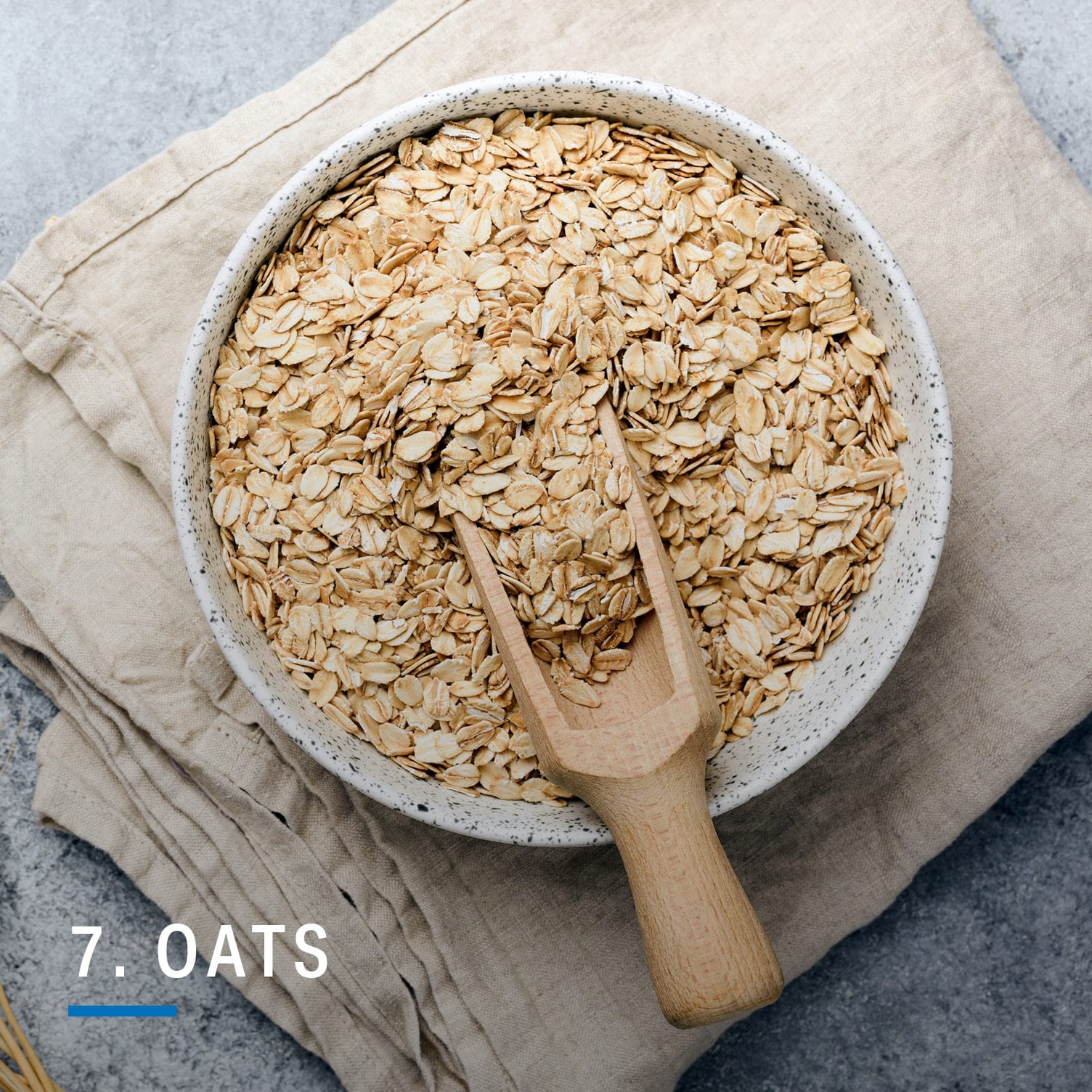
Oats are rich in complex carbohydrates for lasting energy and high in heart-healthy beta-glucan fiber, which may help lower cholesterol. A 1/2-cup (75g) serving offers nearly 4 grams of fiber, 5 grams of protein, iron and B-vitamins. Beyond the classic overnight oats, they’re also great in veggie burgers, as a gluten-free flour alternative in muffins and baked goods, a replacement for breadcrumbs or to thicken smoothies.
Price tag: A serving of oats costs less than $1, especially if you buy in bulk.
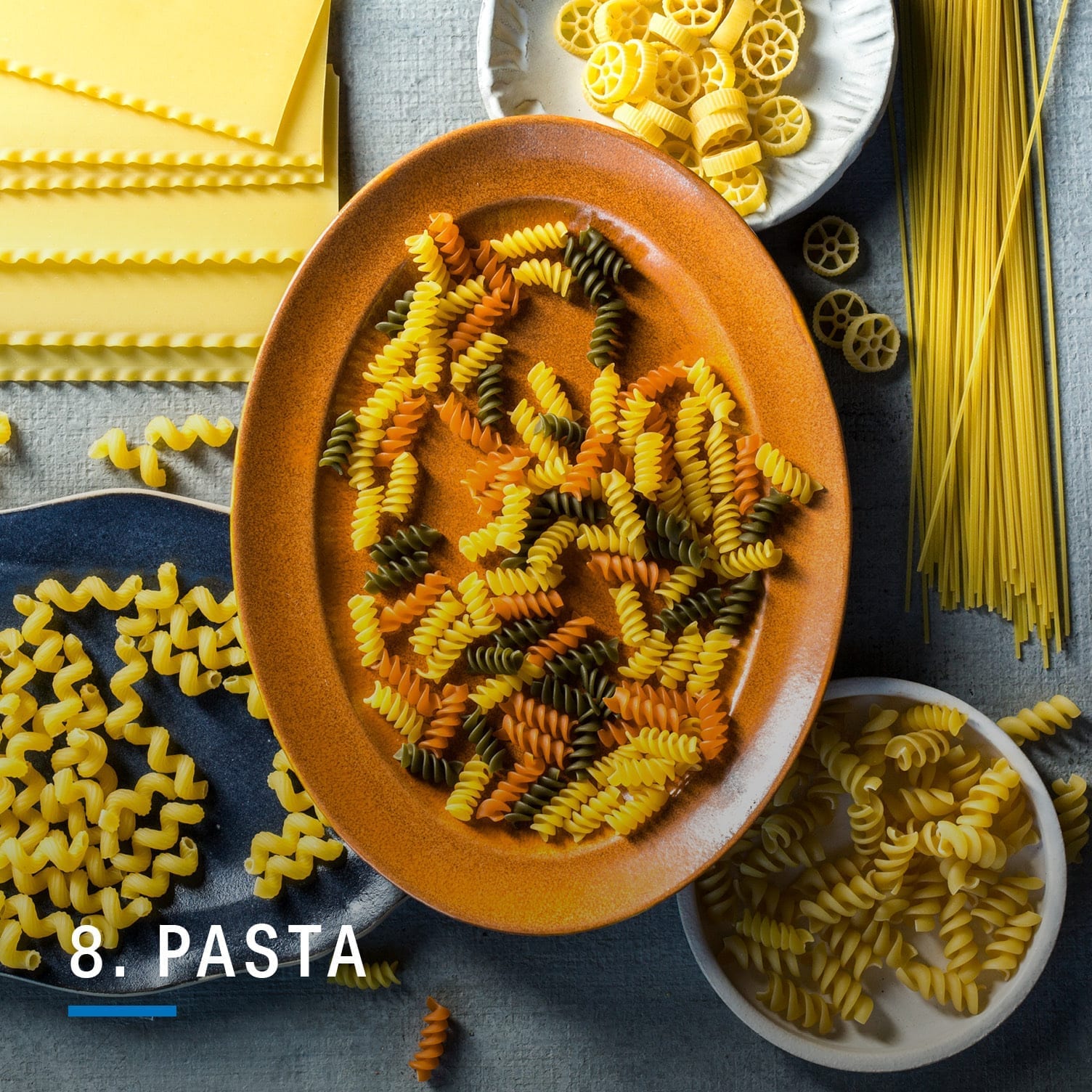
Pasta can definitely be part of a healthy diet and even aid weight loss. The key is to enjoy pasta with other nutrient-dense ingredients like veggies and lean proteins. Whole-wheat pasta adds extra micronutrients while some white pastas are fortified with iron and B vitamins.
Price tag: Pasta generally costs less than $1 per serving.
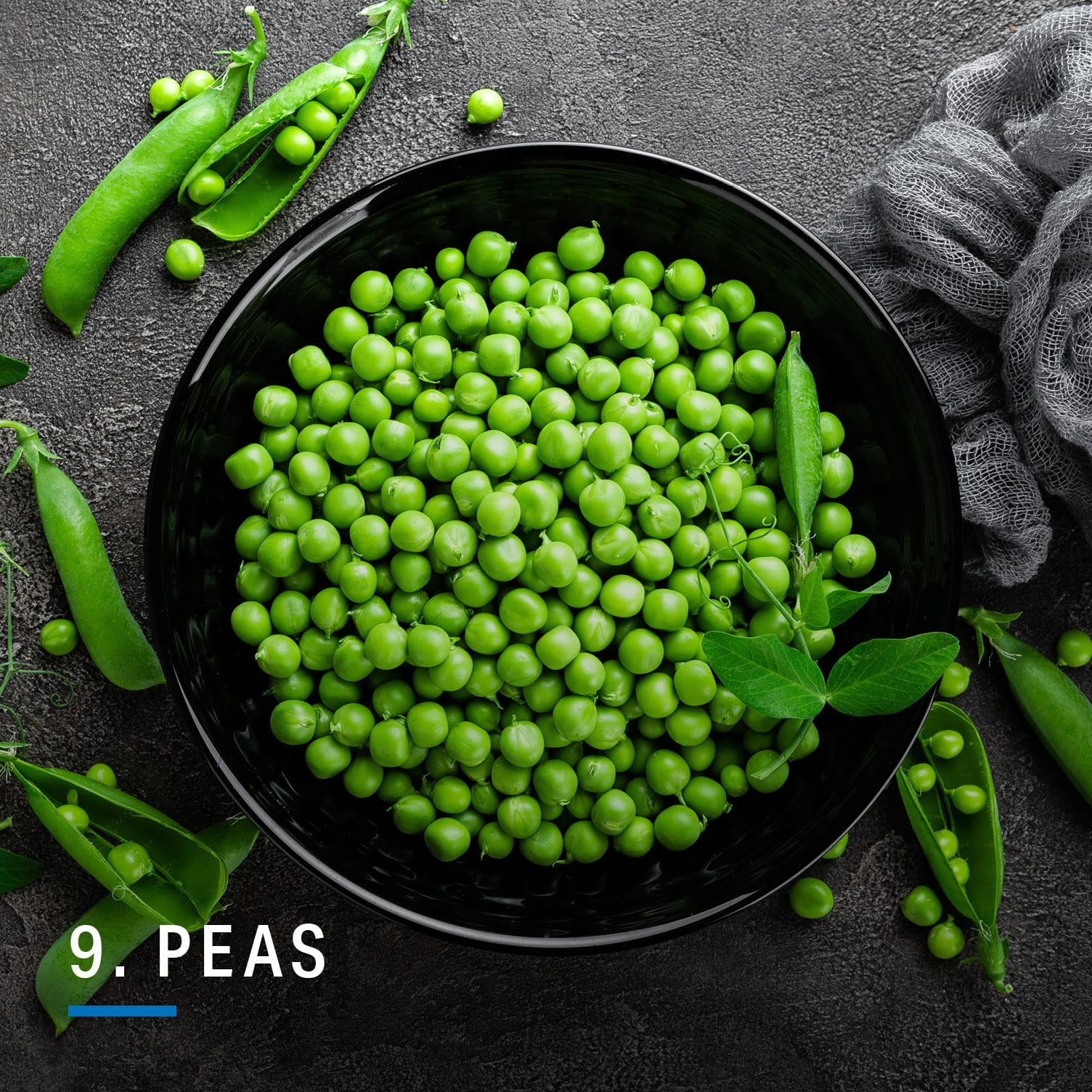
One cup (150g) of peas offers 8 grams of protein (more than one egg and about equal to 1 cup of milk), nearly 9 grams of fiber, as well as several B-vitamins. Add canned or frozen peas to your salad or pasta or throw them in a tuna or chicken salad for a budget-friendly way to increase the nutrient content of your meal.
Price tag: A bag of frozen peas generally costs about $1, while canned peas generally cost less than $1.
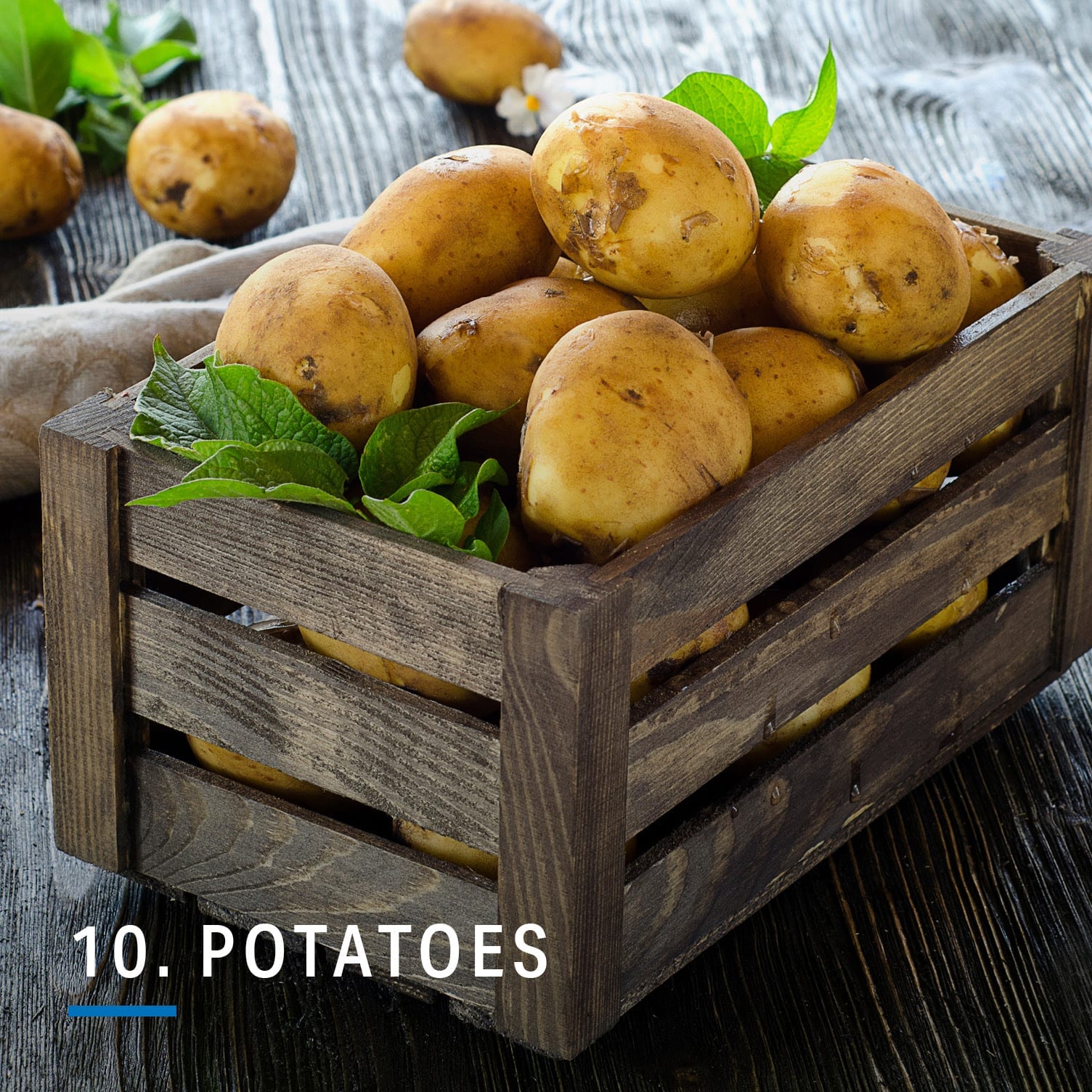
Both traditional white and sweet potatoes are must-haves for easy meals, especially since they can be microwaved and fully cooked in 6–7 minutes. Both offer great sources of potassium, magnesium and fiber, while sweet potatoes offer additional amounts of vitamins A and C and small amounts of calcium. Stuff your baked potatoes with beans and cheese, use them in pizza crust or try them in a breakfast hash.
Price tag: Both varieties generally cost about $1–$1.50 for a medium-sized potato.
Discover hundreds of healthy recipes — from high protein to low carb — via “Recipe Discovery” in the MyFitnessPal app.
